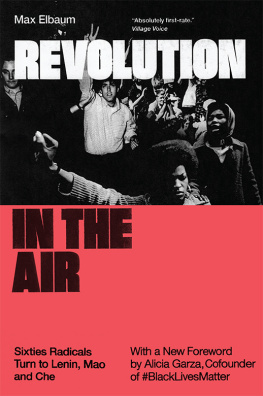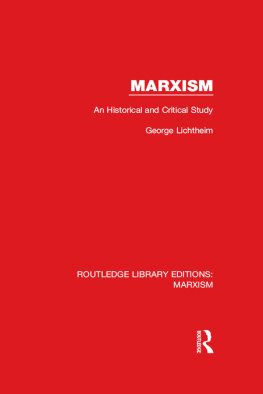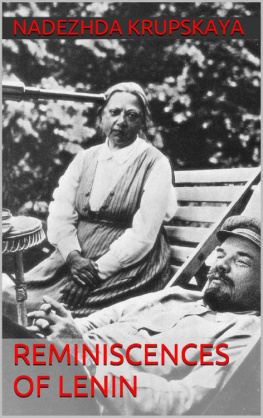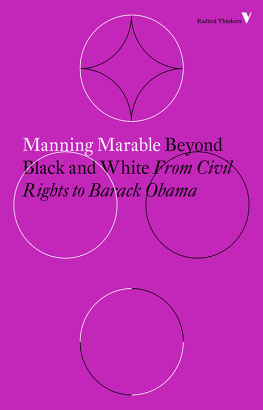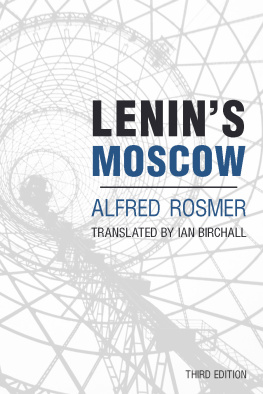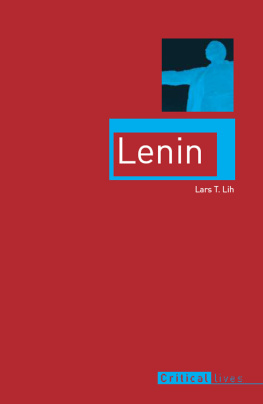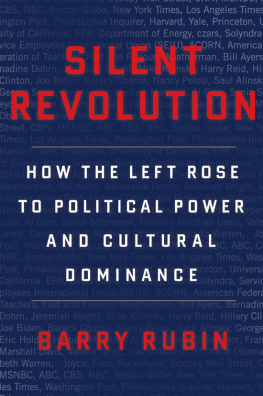All good books are alike in that they are truer than if they had really happened and after you are finished reading one you will feel that all that happened to you and afterwards it all belongs to you; the good and the bad, the ecstasy, the remorse and sorrow, the people and the places and how the weather was.
Ernest Hemingway
My first reading of Revolution in the Air left me profoundly confused. As a young organizer I read this book as if each page should contain a ready-made solution to the challenges I was grappling with. How could we build a millions-strong movement when our organization and those we worked closely with only engaged hundreds? Could anything be done to close the gap between paid staff organizers and the membership of organizations, who were largely working class people of color? What was needed to contribute to a mass movement for safety and justice while winning concrete gains for our communities? What happened to the radical groups that Id heard so much about? How would we know if revolution was, in fact, around the corner?
Of course, this approach was misguided, but certainly fit the stage of development that I was in. I hadnt yet spent enough time building the movement to understand its nuances. I hadnt yet studied much of the origins of the Marxist-Leninist tradition that I was loosely trained in. I made it all the way through the first part and then skimmed the rest. Ill come back to it, I said to myself.
Coming back to this book after nearly twenty years of organizing and building a movement and just weeks after Donald Trump was declared the winner of the contest with Democratic candidate Hillary Clinton, the words within could not have been more important or, as Hemingway said, they could not be truer than if they happened to me. As I came back to the book for the second time, there was so much texture, so many contours. There were times Id put the book on the table and just stare into space. How had I missed these valuable stories? How might my work have been different if only Id come back to Max Elbaum a little bit sooner?
The truth is, as Max tells us, its through the experience of making mistakes, of taking risks and having our efforts fail, that we can assess with clear eyes what went wrong, what went right, what the opposition is up to, and what to do or not to do the next time one is presented with an opportunity. Hindsight may be 20/20, but in this case, the hindsight offered in this book is critical to advancing the legacy that Max and so many others have fought for. This hindsight contains the lessons that I so desperately searched for when I first picked up this book.
Perhaps it was divine intervention that Max asked me to pen a new foreword for the book, just two months before the election. The consequences of the lessons offered here are clearer to me now than they were when I picked up this book years ago, particularly those lessons that highlight the tension between becoming the left wing of the possible versus the proposition that a key task of the left is to expand the boundaries of what is considered possible.
Throughout my early organizing, I would listen as Max and others warned us about the dangers of sectarianism. The consequence of being dogmatic around a political line was the halted potential of building mass bases that could contend for power on the basis of a political program. Max writes,
Without a large, active and anticapitalist social base to draw strength from, interact with, and be held accountable to, left organizations face profound dilemmas. Pressures to surrender revolutionary politics in order to make an immediate impact on public policy are immense. On the other hand, groups determined to resist the rightward pull find that even survival much less growth is no easy task. Temptations to retreat into a small but secure niche on the margins of politics and/or confine oneself to revolutionary propaganda are extremely great. So is the impulse to rely on purer-than-thou fidelity to old orthodoxies to maintain membership morale, ensure organizational cohesion and compete with other groups. As Marx himself put it, when the working class is not yet ripe for an independent historical movement, it will be a period of socialist sectarianism.
For example, Revolution in the Air posits that much of the Left is ambivalent, at our own peril, about elections and electoral organizing, despite overwhelming evidence to the contrary that elections do, in fact, matter. Despite celebrating the political orientation of leaders like the late Fidel Castro or the late Hugo Chavez, the Left acts as if millions of people dont use elections as a vehicle to express the future that they want to see and ridicules the idea that power is partially expressed through decision making and, short a strategy of armed struggle, have little to no chance of taking power in the United States without somehow engaging in electoral organizing strategies.
The election of Donald Trump on November 8, 2016, was a bittersweet reminder of this dynamic and its consequences. During the election, the Left missed several important opportunities. One was an opportunity to extend the conversation curated by movements like Occupy Wall Street to highlight the dangers of capitalism. Another was the opportunity offered by candidates like Bernie Sanders to further expand the conversation about socialism. Yet another was to resist the narrowing of our vision into specific issues rather than broadening to a larger program of freedom and democracy for all. Still another was the opportunity to resist coopting the language of liberals who bemoan identity politics to destabilize forces behind the important demands to dismantle structural inequality and racism.
The radical Left adopted three basic positions with respect to the most recent election. One position was that the election represented a contest between two sides of the same coin; that there was no fundamental difference between the Democratic Party and the Republican Party and, thus, engaging in the election would demonstrate an adherence to the corrupt two-party system, thereby constituting an act of treason against Left principles, politics, and values. Another position was that Hillary Clinton was simply too corrupt to vote for; as such, they would sit out the election or vote for a third party, such as the Green Party or Libertarian Party. The third position was somewhere in between; that the primary task was to defeat Donald Trump and the GOPs hateful agenda, or that Hillary Clinton, while not perfect, represented the best of what was possible under neoliberalism and that a vote for her was a vote in favor of womens equality. My estimation of things is that most of the Left was somewhere between the first two positions believing that both parties and/or candidates were irreparably corrupt and therefore that it was a betrayal of the Left to engage in any manner other than critique.

